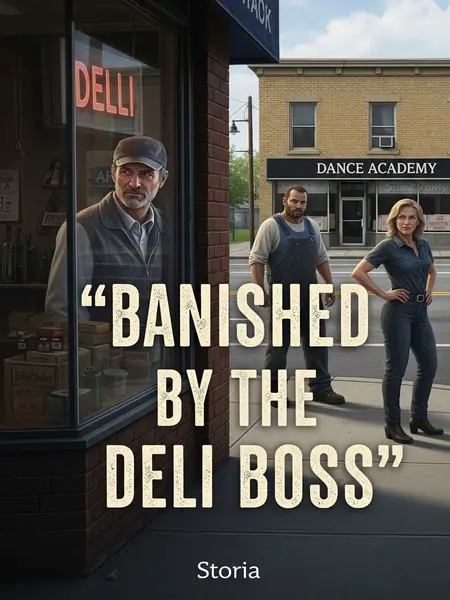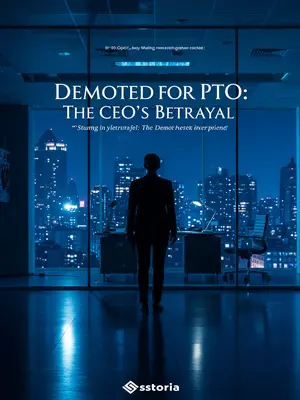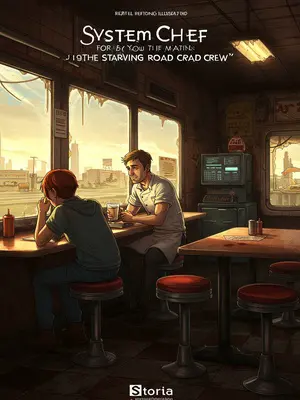Chapter 2: Lunches and Loyalty
After a busy morning, I led a group of workers over to the deli. Dust clung to our jackets, and the chatter was easy—guys ribbing each other about the weather, the Browns, and whether the coffee at Mike’s was strong enough to keep anyone awake.
Mike’s Deli is the only option around. The food’s nothing to write home about, but the portions are big, and you could always get free soup and bread refills. The place has that old Cleveland blue-collar charm: linoleum floors, faded baseball pennants tacked behind the register, and the faint smell of fryer oil baked into every corner.
It’s tough for the guys to make a living, so they don’t fuss about taste. That’s why I’ve brought them here for three years. Lunch is about getting full and getting warm—not about culinary adventure. There’s a camaraderie in cramming around the tiny tables, boots knocking, hard hats clunking on the floor.
We were joking around as we walked over, just in time to pass some guys heading back from lunch. Their faces were a mix of irritation and disbelief, one of them shaking his head as if he’d just seen a ghost.
They stopped me.
“Foreman Derek, the deli changed the rules. From now on, bread refills cost seventy-five cents.”
I was confused. I blinked at them, thinking maybe I’d misheard. Bread refills? We’d always joked that Mike’s breadbasket was bottomless.
Back then, I found this deli near my daughter’s school. It was the kind of place you wouldn’t look at twice, half the bulbs burned out on the sign, but the smell of onions and meat wafted down the street.
At the time, he barely had any customers. After I brought him over to the job site, business started booming. Word spreads fast among laborers—good deal and a hot meal, and soon Mike’s counter was packed at noon.
Now, whenever anyone mentions construction site lunches in this part of Maple Heights, everyone knows Mike’s name. He went from struggling to keep the doors open to being the go-to spot for anyone in a neon vest or paint-spattered jeans.
Because the site brought Mike a lot of business, he specifically promised free refills on soup and bread for the crew. It wasn’t in writing, but it was the kind of handshake deal that means something around here.
So why is he charging now?
That worker saw my doubt and pointed. “Foreman Derek, the sign’s right there.” His finger was smudged with drywall dust.
I walked over, and sure enough.
Mike had taped a sign right by the bread basket at the front counter. It read: Extra bread refills now $0.75 each. The tape was curling at the corners, but the message was clear as day.
I adjusted my glasses and saw Mike pick up a big serving spoon, banging it loudly on the sign in my direction. A couple of regulars looked up from their bowls, startled.
“All of you, you’re not blind, are you? If you’re not blind, look close before you pay for your meal!” His voice carried over the din, the kind of bark you only get from years behind a counter.
I wasn’t happy.
Because this wasn’t the first time he’d lowered the lunch standards. The guys had been grumbling for weeks, but this felt like the final straw.
Honestly, the food at his place isn’t great.
But at least there used to be a jar of homemade hot sauce on every table.
That hot sauce was legendary—guys would sneak extra packets into their lunchboxes, and Mike’s wife would just wink like she was in on the secret. The sauce was made by Mike’s wife—salty, spicy, and perfect with bread. The recipe was a mystery, but it packed enough heat to wake you up after an all-nighter pouring concrete.
After working all day, the guys needed their salt, so everyone loved the hot sauce. It was the one thing that made plain soup and limp bread into something worth eating.
But two months ago, the sauce suddenly disappeared.
I went to ask Mike about it.
He glanced at me sideways. “Hot sauce goes too well with bread. With it, you people eat two more rolls than usual. From now on, we’re not providing it.” His lips curled in a half-frown, half-smirk, like he was daring me to argue.
His wife is usually more tactful. She quickly tugged at his sleeve and kindly explained to me,
“Derek, it’s not like that. This kind of pepper’s special, and suddenly we can’t get it anywhere. Nothing else can replace it, so we’re not making hot sauce anymore.” Her voice was gentle, the way people talk when they’re trying to keep the peace.
I knew what Mike said was true, but I didn’t say anything. The truth is, we’re just customers. He could stop giving out napkins if he wanted. It stung, but what could I do?
After all, we only agreed to buy lunches—there was never a rule about hot sauce.
So the matter passed, but some of the guys had already started complaining in private. I heard it in the break room, murmurs over microwaved coffee and half-eaten bagels.
I didn’t expect that after the hot sauce was gone, now even bread refills would cost money!
I wanted to stand up for the crew, so I played dumb and asked Mike:
“Mike, this rule is for walk-ins, right?” I kept my voice level, but my jaw tightened just a bit.
Mike glared at me:
“Come on, man! It’s especially for you construction guys. If I let you guys keep going, I’ll be outta bread and outta business by Friday.” He waved the spoon for emphasis, like we were a pack of unruly kids.
After that outburst, the guys were clearly annoyed. I saw fists clench and faces flush—there’s a limit to how much disrespect you can take over a $4.50 meal.













